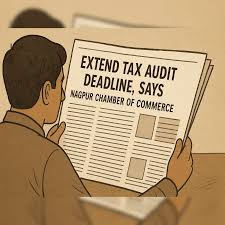Understanding Tax Audit Date Extension in India

Importance of Tax Audit Date Extension
Tax audits are a critical aspect of financial transparency and compliance for businesses and individuals alike. In India, recent announcements regarding tax audit date extensions have generated significant attention among taxpayers. These extensions can provide much-needed relief and time for taxpayers to prepare their documents accurately, especially amidst ongoing economic challenges.
Recent Developments
As per the latest notification from the Ministry of Finance, the deadline for filing tax audit reports has been extended to allow taxpayers additional time to meet compliance requirements. The original deadline was 30th September, but the extension now allows for submissions until 31st October. This adjustment has been welcomed by many in the accounting and financial sectors, who argued that the original timeline was often too tight considering the scope of the documentation required.
Impact on Taxpayers
The tax audit date extension is expected to ease the burden on many small and medium-sized enterprises (SMEs), which are often the most affected by compliance timelines. SMEs often face resource constraints that make it difficult to compile the necessary information and documentation within a limited timeframe. Moreover, with the pandemic and its effects still lingering, many businesses have reported disruptions in their operations, which further complicates their tax preparations.
Further Implications
While this extension provides immediate relief, taxpayers should not view it as an opportunity to delay compliance. The tax authorities emphasize the importance of timely filings and transparency, and continued delays could lead to penalties or audits. Awareness about the audit process, as well as proactive measures such as seeking professional assistance, may prove beneficial during this period.
Conclusion and Future Outlook
The extension of the tax audit date signifies a recognition of the complexities faced by today’s taxpayers. Moving forward, it remains crucial for taxpayers to stay informed about regulatory changes and deadlines. Forecasts suggest that as the government continues to adapt its policies to better serve economic recovery, more flexible deadlines and amendments could be on the horizon. For taxpayers, staying engaged and proactive will be key to navigating future tax landscape changes.









